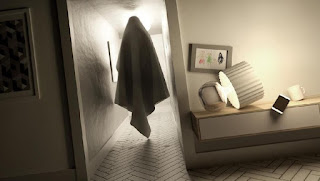The phenomenon of hearing magical voices or ghost voices is a subject that is quite often discussed. Spiritually, this phenomenon also often gets a number of explanations. But scientifically, scientists are trying to find the answer.
Specifically, the researchers wanted to better understand why some people with these 'hearing' experiences are more comfortable calling them spiritual experiences, while others feel more depressed and accept mental health diagnoses.
"Spiritualists tend to report unusual auditory experiences that are positive, starting early in life and which they can then control," explained psychologist Peter Moseley of Northumbria University in the UK when the study was first released.
"Understanding how this develops is important because it can help us understand more about the experience of hearing a distressing or uncontrollable sound," he explains.
He and his colleague psychologist Adam Powell of Durham University in the UK then recruited and surveyed 65 media clients from the British National Union of Spiritualists as well as 143 members of the general population recruited through social media, to determine what distinguishes spiritualists from the general public.
Overall, 44.6% of spiritualists reported hearing a sound every day, and 79% said the experience was part of their daily life. While most reported hearing voices inside their heads, 31.7% reported that the noises were also coming from outside.
The survey results were surprising. Compared to the general population, spiritualists report a much higher belief in psychics and are less likely to care what other people think of them.
As a further fact, spiritualists as a whole had their first hearing experience at a young age, at an average age of 21.7 years. In addition, they reported that they were more prone to experiences such as hallucinations.
These results, the researchers say, suggest that these individuals experience the 'phenomenon of hearing the voices of the dead' because these individuals have adopted spiritualism. They feel connected to the experience and personally, it means a lot to them.
"All these experiences may have been more because (they) had a predisposition or ability from the start, rather than simply believing in the possibility of contacting the dead with effort," he said.
In other words, it is possible that people who hear the voices of people who have died are because they already have the 'talent' and tendency to easily hear voices. Coupled with the historical elements that bind and align, one can have the experience of hearing the 'voice of the deceased'.
Finally, the researchers conclude that future research should explore various cultural contexts to better understand the relationship between absorption, belief, and the unique spiritual experience of hearing ghost voices. Therefore, there are still many answers that can be extracted from the experience of hearing the voices of people who have died.


